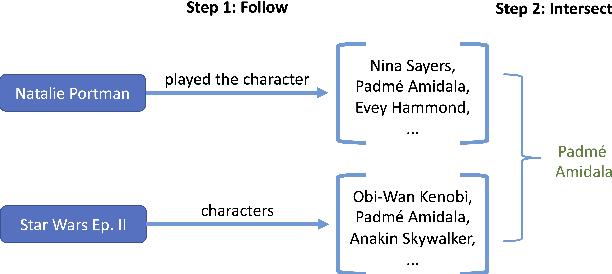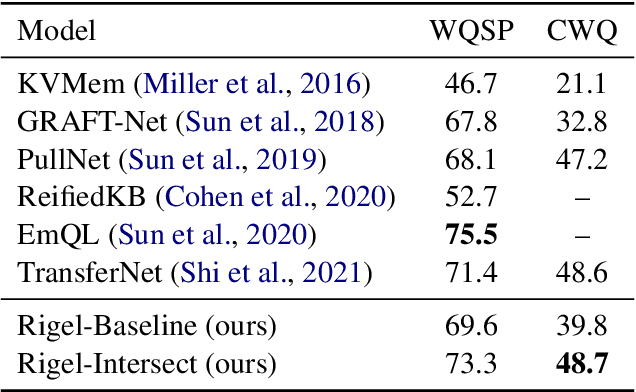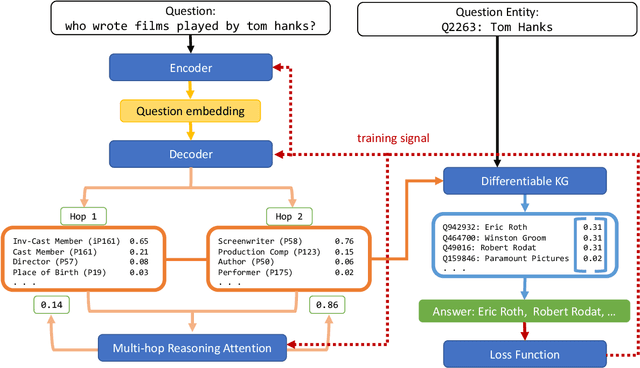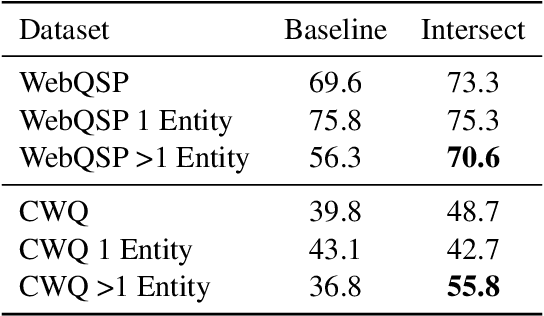Expanding End-to-End Question Answering on Differentiable Knowledge Graphs with Intersection
Paper and Code
Sep 13, 2021



End-to-end question answering using a differentiable knowledge graph is a promising technique that requires only weak supervision, produces interpretable results, and is fully differentiable. Previous implementations of this technique (Cohen et al., 2020) have focused on single-entity questions using a relation following operation. In this paper, we propose a model that explicitly handles multiple-entity questions by implementing a new intersection operation, which identifies the shared elements between two sets of entities. We find that introducing intersection improves performance over a baseline model on two datasets, WebQuestionsSP (69.6% to 73.3% Hits@1) and ComplexWebQuestions (39.8% to 48.7% Hits@1), and in particular, improves performance on questions with multiple entities by over 14% on WebQuestionsSP and by 19% on ComplexWebQuestions.
 Add to Chrome
Add to Chrome Add to Firefox
Add to Firefox Add to Edge
Add to Edge